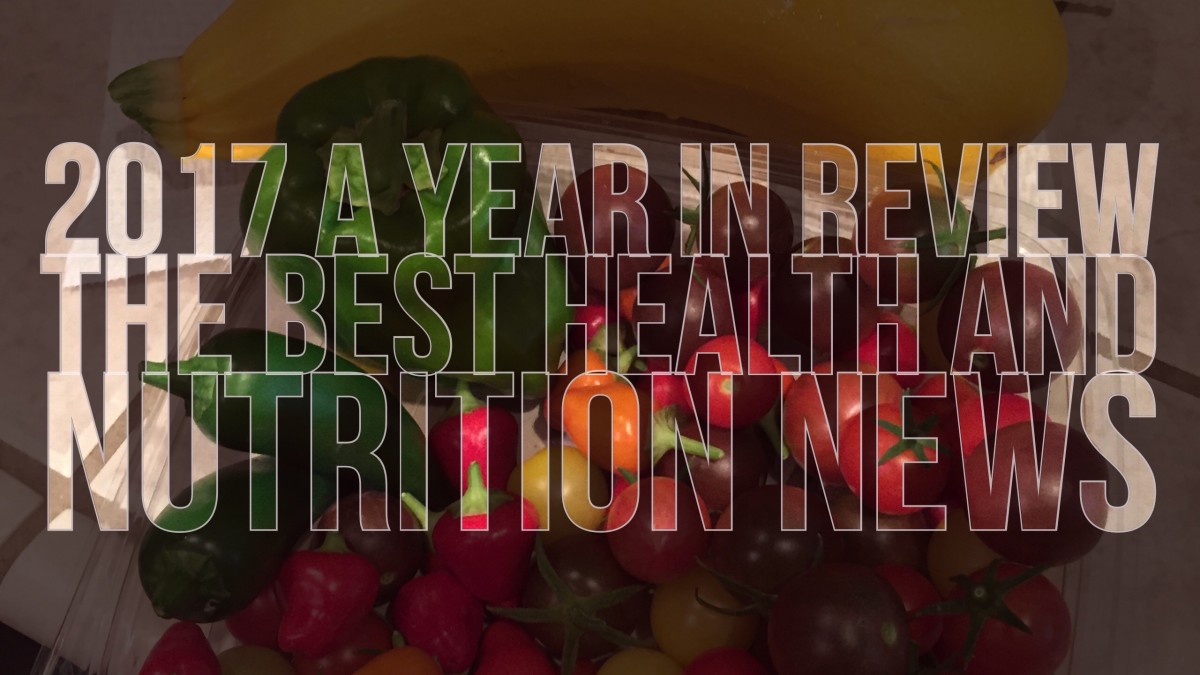2017 Year In Review: The Best And Worst Health And Nutrition Science News
Let’s start with the bad news that came in 2017…
Yo-Yo Diet Disaster
A study published in the New England Journal of Medicine discovered that people who experience large fluctuations in weight are twice as likely to have a heart attack or stroke, compared to those who maintain a steadier weight.
Does this mean you should just stop even bothering to go on diets, all together? How about no…
It means you should adopt a diet that’s sustainable for the long haul, as opposed adopting a binge for a while and then avoid for a while lifestyle.
Stress makes you fat!
This one is no surprise, but research published in the Obesity Journal found that those with the highest levels of cortisol—aka the stress hormone—tend to have the heaviest body weights and widest waist circumferences.
Stop the Turmeric madness!
For whatever reason, people have gone nuts over turmeric in the last couple years in all its alleged health benefit glory.
But alas, this might all be a lie. The Journal of Medicinal Chemistry published a study that found zero evidence to support turmeric’s bold health claims.
Same goes for Kale…
Turns out kale, once deemed a super-food—a word that is proving to mean nothing more than a temporarily popular fad—might actually be bad for your health.
Or at least kale salads might cause problems. While kale propaganda has led us to believe kale is heart healthy and has cancer-fighting properties, science from Oregon State University says RAW kale can cause problems for your thyroid.
Green Tea, too!
Green tea also got bumped off the superfood list in 2017. Turns out, it might do more damage than good.
It is now believed that green tea supplements can cause liver damage. If you’re suffering from liver failure, a cup of green tea might even kill you, “they” say!
Further, the former superfood—when ingested in supplement form—might even decrease the effectiveness of certain antidepressants and anti-clotting medications.
Oh, and it also could elevate your heart rate and blood pressure to unwanted levels.
What do you mean diet soda is bad for me?
Once deemed acceptable because they have zero calories, turns out artificial sweeteners in diet sodas etc can still make you fat!
Research from Yale University discovered sweetness plays a role in your body’s metabolic response to food regardless of how many calories it has.
Apparently, when your body experiences sweetness, it ends up storing extra calories as fat rather than converting them into energy.
Don’t worry, there was plenty of good news that came in 2017, as well, including:
Hot sauce your way to a longer life
Apparently capsaicin, the ingredient in hot peppers, also has metabolic-boosting capabilities, which can help regulate blood sugar levels.
Further, a study that looked at more than 16,000 people discovered that those who ate spicy food and hot peppers are 13 percent less likely to die early.
Your diet doesn’t have to be perfect all the time!
A study published in the International Journal of Obesity found that even those who followed two weeks on, two weeks off pattern of strict and less strict eating, were still able to lose weight.
Researchers believe that balancing out calorie restriction with higher calorie intake stops your body from every going into starvation mode, thus boosting your metabolism.
Your mother was right: Eat your veggies!
A study published in the British Medical Journal found women who consumed 3 to 4 servings of veggies each day are 12 percent less likely to experience high levels of stress in their life.
Meanwhile, another study linked veggie consumption to an increased risk of obesity. Duh, right?
Carbs might not be so bad, after all!
It’s hard to know what to believe when it comes to what you should use as fuel in your body, though recent trends have leaned toward the idea that fat doesn’t make you fat, and that carbs should be avoided.
A study published in the American Journal of Clinical Nutrition, though, says carbs are good, or at least WHOLE GRAINS are good (especially when compared to refined grains).
In short, the study found those who ate whole grains burned calories better than those who ate refined grains, and their glucose tolerance was better, too.
5. Breastfeeding? You can keep drinking that glass of wine!
A post I read on helpmestop.org.uk said that a study conducted by the National Drug & Alcohol Research Centre and Deakin University in Australia found that a glass of wine or so while breastfeeding is absolutely harmless.
The researchers looked at maternal demographics and substance use during pregnancy, as well as eight to twelve months postpartum.
They also looked at breastfeeding duration, as well as infant feeding, sleeping, and development.
The result: One glass of alcohol a night had no effect on breastfeeding duration, on infant feeding or on sleeping behaviors, nor did it seem to affect any development outcomes at either eight or twelve weeks.
Are you women? You need to be strength training!
Another win for strength training: A study published in Medicine and Science said strength training significantly lowers the risk of Type 2 diabetes and cardiovascular disease in women.
What will 2018 bring?







